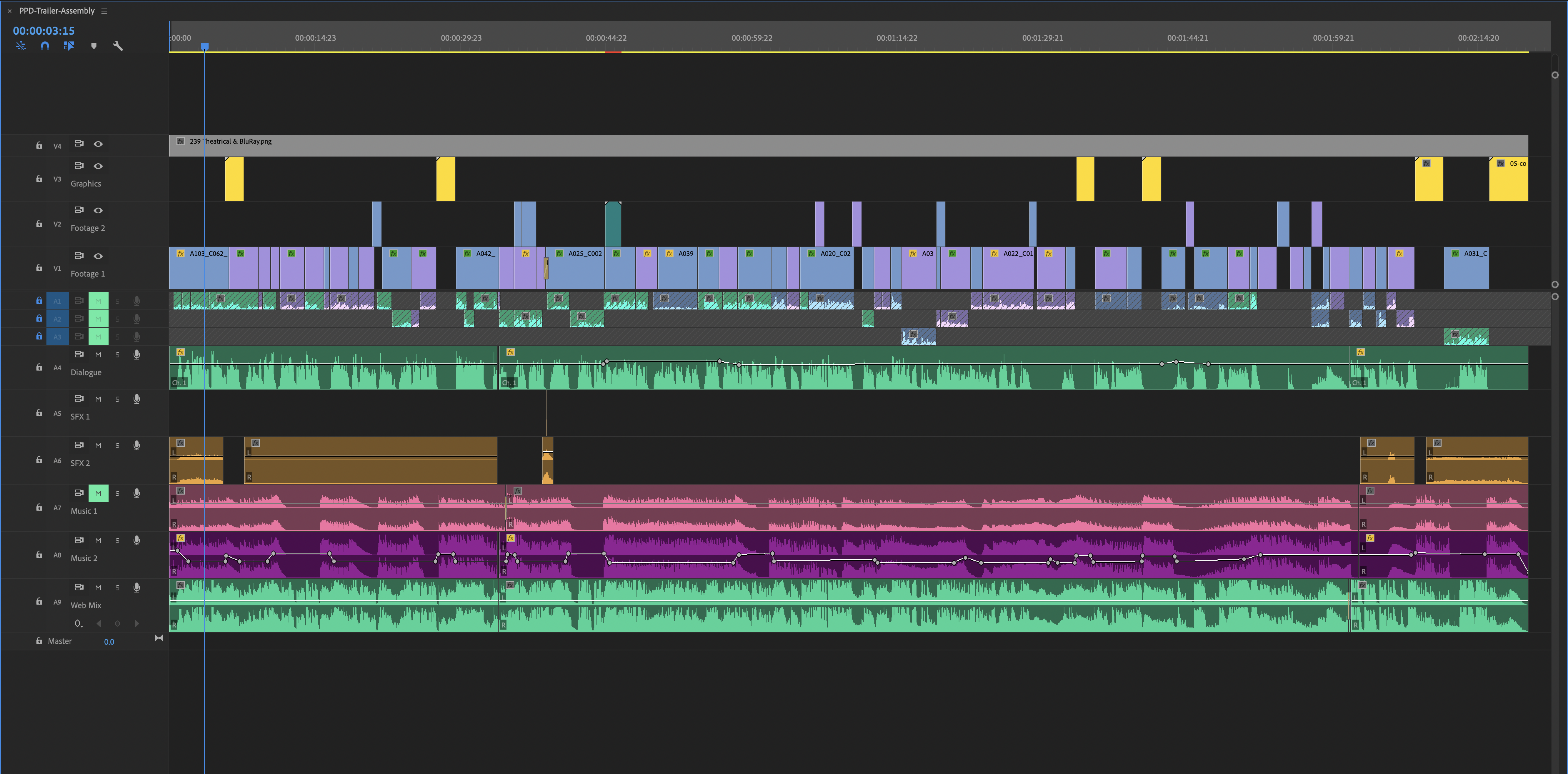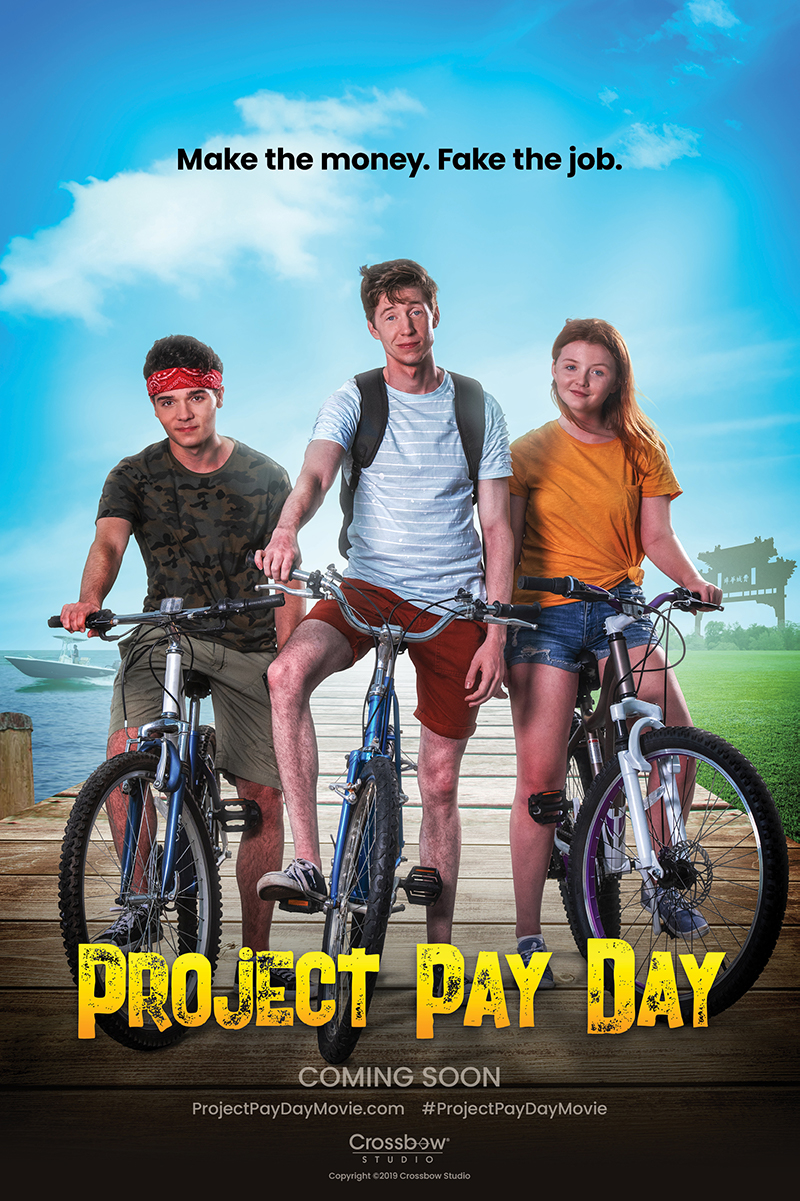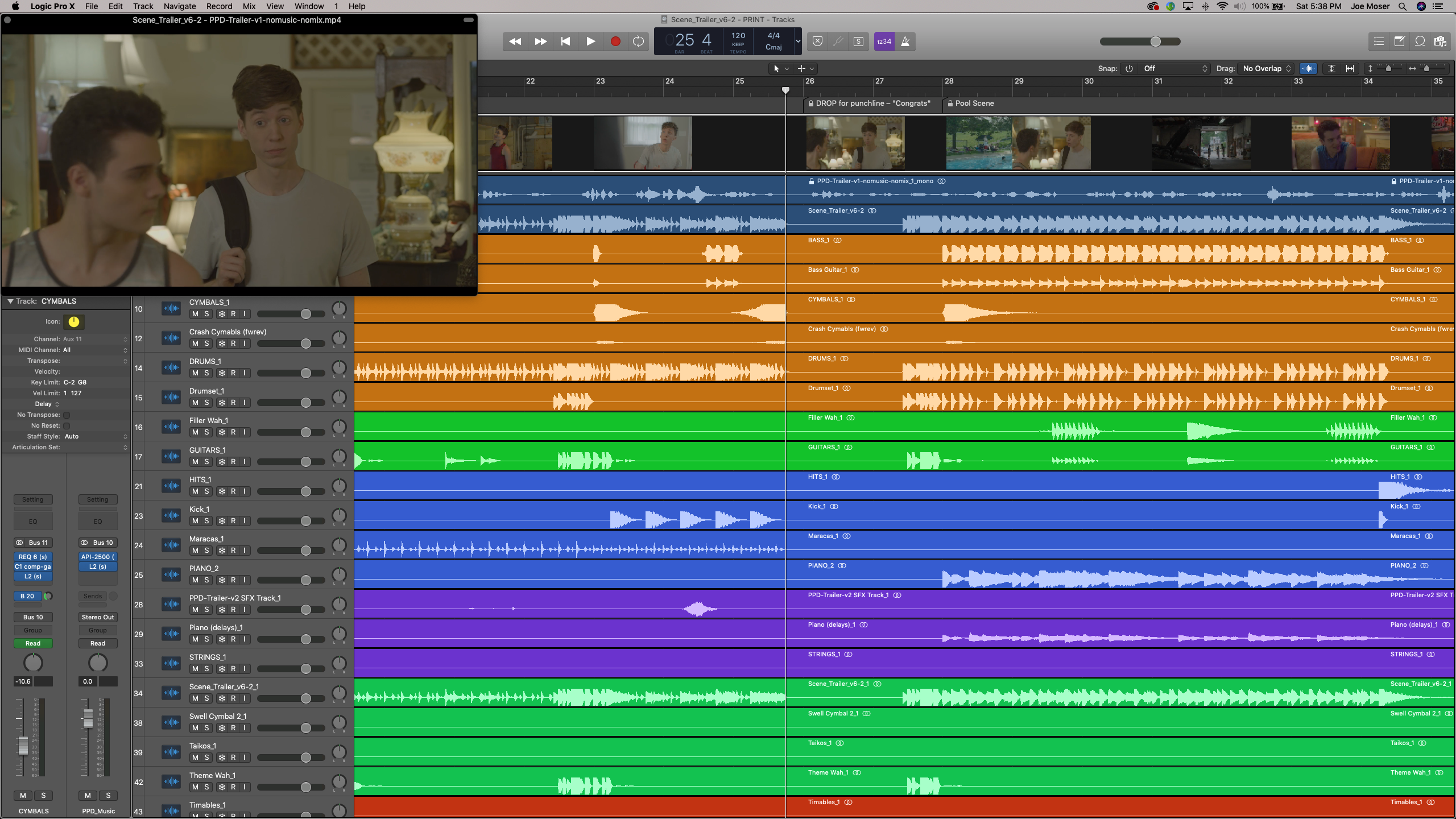Meet Jérémy Pitard — the winner of our 2019 Trailer Editing Contest! We had a…

The Art of Trailer Editing Student Interview: Greg Koorhan
Today we’d like you to meet Greg Koorhan, a recent graduate of our training course, The Art of Trailer Editing.
We were excited to hear about his success securing a distribution deal for his new film, Project Pay Day. Let’s get started by taking a look at Greg’s cut:
The trailer for Project Pay Day edited by Greg Koorhan
Pretty fun and well done! Allright, now let’s get to know Greg and dive into some of the details and process that went into his cut.
Meet the Editor
FEP: Tell us a little bit about your history with regards to editing. Are you self-taught? Any formal education such as work experience or film school?
GK: I’m a self taught editor (besides Film Editing Pro courses, LOL) I went to school for art direction and design, and spent my early career in advertising. Good commercials are basically short stories, so I had to learn how to craft a concise, compelling message and deliver it in 30 seconds or less.
FEP: You also dabble in writing, directing and producing. Was editing a necessity or have you always been passionate about it?
GK: I co-founded my video production company, Crossbow Studio, in 2005 and because our team was fairly small, we all had to wear several hats. After a few years of doing client work, I started writing and directing original short films. I’m passionate overall about how stories affect and connect each of us, but found that directing was really my sweet spot.
But you know how it is with self-funded projects (in other words, no budget), – I’d perform the edit as well, so we could save some money for music, VFX or maybe a colorist. Interestingly, I find I enjoy post-production and editing just as much as pre-production and directing on set, because it’s a chance to revisit the story and “direct” the performances a little further. Anyway, when the shorts continued to do well in festivals, I began thinking about larger projects.
FEP: Could you share a little bit about your latest film, Project Pay Day and how you became involved?
GK: I optioned the rights to a young adult novel (Project Sweet Life by Brent Hartinger) and worked with the author to adapt it into a screenplay. Then, I put together a plan that showed how the project could be profitable, even if we never got major distribution and had to sell direct to consumers. That got the ball rolling, and we took the project from script to funded to production to securing a distributor in twelve months.
FEP: Have you ever edited a trailer/teaser/promo before Project Pay Day? Or before taking The Art of Trailer Editing?
GK: This was pretty much my first. I mean, I’ve cut trailers for some of our short films, and in my past career, I edited a few commercials for films for clients (I used to work with New Line Cinema and CBS TV). But everything I’ve done up to this point was by my gut. It wasn’t until I went through the course that I understood the strategies behind constructing an effective trailer. I took the course specifically because I knew the trailer for Project Pay Day needed to be the best it could be.
FEP: Often when working on the trailer for a film you’ve created, it can be difficult to stay objective – cutting the non-essential moments and honing in on only the best ones. How did you approach this challenge? Were there any moments that were particularly hard to part with?
GK: You are not kidding, staying objective was incredibly difficult! Because I directed and edited the film, it was hard not to be attached to every frame ;-)
So as I assembled the cut, I kept asking myself, over and over – “Does this clip only make sense because I know the context from which it came?” I had to ruthlessly stick to that, and it took a lot of discipline. There were plenty of scenes I thought would be fun to include, but they just didn’t make sense unless you had ALREADY seen the movie. So they had to go.

FEP: How did you go about planning your trailer? Such as structuring out the story and deciding how to sequence the funny moments?
GK: The process I followed was straight out of The Art of Trailer Editing! Project Pay Day is a fun, teen/family adventure, so I started by defining the single concept I wanted to communicate: the kids want to avoid getting summer jobs. Then I added in the hook: the kids decide to lie about having jobs and just hang out instead.
Then I collected all the best moments, and arranged them to:
- First introduce the main characters
- Set up the problem and hint at the conflict
- Raise the stakes (without giving anything away)
- Start the ‘wild ride’ montage that shows off some “summer fun” and “adventure” elements
- Add funny moments to bridge each thought
- Finish with a punchline that sums up the concept one last time
One of the most critical – but also difficult – things I had to keep in mind, is that the goal was to SELL the story, not to TELL the story. That was such a challenge, but it was essential to keep reminding myself of that as I examined and trimmed every last frame.
One of the most critical – but also difficult – things I had to keep in mind, is that the goal was to SELL the story, not to TELL the story.
FEP: You did a great job with the comedic timing of the piece, utilizing music stops to highlight and emphasize the jokes. Can you talk a bit about how you built these music stops in your software and the specific sound effects you used?
GK: Thank you! I was lucky to be working with a very talented composer, Joe Moser, who was in the middle of creating the original score for Project Pay Day. We went through the trailer edit and “spotted” the moments that needed air for the jokes to land, and where cymbals or bass hits might help emphasize the drama. We also added a whoosh to punctuate the transition point that reveals the main character’s “lie”.
The music was assembled in Logic Pro, using a reference video (see screenshot below) The music was brought back into Premiere Pro for the final assembly with the dialogue. A few sound design elements, like the bicycle gear noises at the beginning, some water splashing in the middle and birds chirping at the end – were layered in to give it some polish and reiterate the “summer” feel.
FEP: Where did you source your music for this trailer? How many cues did you use and how did you piece them together to form a solid progression from start to finish?
GK: Joe created a few musical “themes” for the different acts in the trailer. An acoustic guitar for the carefree summer opening shot, a drum beat for the impending conflict, and an electric guitar to drive the action. It was a very collaborative process; I’d provide comments and he would adjust the transitions, ringouts, adding a sustained note to emphasize the mystery, etc. By the time we were done it ended up being its own score – very little of the music from the trailer ended up in the final cut of the film.
Creating the cues specifically for the trailer is unusual, I know. But we used the same thought process for applying music stops and SFX as taught in the course. This just gave us a little more flexibility.
FEP: What were some of the things you learned that helped you the most when crafting your trailer?
GK: Having a structured process to go through helped immeasurably in finding the strongest elements to use. I was surprised how often a clip from late in the film worked better in the beginning of the trailer, and the same in reverse – one of the first scenes in the movie gave the trailer the best ending “punctuation”.

Besides that, learning how and where to use music stops, hits and whooshes as elements in a trailer’s “story” was an eye opener. I don’t watch trailers the same anymore!
FEP: Did you reference any trailers from other movies during the cutting process?
GK: As much as I could. After going through the course, I looked at trailers for several films in the same genre, and made note of how many key ‘moments’ they included, their pacing, how they used title cards, that type of thing. When I felt like they gave away too much, I made note of that, too. I didn’t chart it out or anything like that, but I wanted to absorb as much of the “language” of trailers in the family comedy genre as I could. It also helped me with smaller, technical details, like exactly how long logos and title cards need to be on screen, so I didn’t make noob mistakes.
FEP: What would you say to other editors who are considering cutting a trailer for their own film?
GK: Most people don’t recommend editing a trailer for your own project. But I believe learning to cut an enticing trailer is a skill worth learning. It helps you distill down to the core of your story and create a strong, compelling message, so you can sell the story more effectively. But it’s such a different animal than editing a film and incredibly difficult to get good at it if all you are doing is de-constructing other trailers. Your course not only teaches you a foundation of awesome professional techniques that will up your game, but also the strategy behind when and why to use the tools, to make your trailer as powerful as it can be. There is nothing like it.
FEP: After this trailer was shown at the American Film Market, you received 6 offers for distribution which is such exciting news. What other projects do you have on the horizon (editing or otherwise)? Is there still more work to do on Project Pay Day?
GK: The film wasn’t complete when we took the trailer to AFM, so getting such a positive response, and ultimately securing a distributor, was 100% because of the trailer! The film is now finished, but I can’t share any news yet. ;-)
I’m in development on my next project, so stay tuned!
In the meantime, most filmmakers I know are not good at marketing or promoting themselves, so I also help indie artists who want to grow their audiences and position themselves to deliver profitable projects like this. If that’s you, feel free to get in touch.
FEP: We appreciate you taking the time to talk with us Greg! So, how can people get in touch with you with regards to this film, for other work, etc.?
GK: For more info and updates on Project Pay Day you can go to: https://projectpaydaymovie.com
To contact or work with me, please reach out via my website: https://gregkoorhan.com
Wrap Up
Thanks for checking out this interview!
If you’re interested in learning more about The Art of Trailer Editing, sign up below to get three free lessons and learn more about the full-length course.
Leave Your Thoughts & Comments Below:




